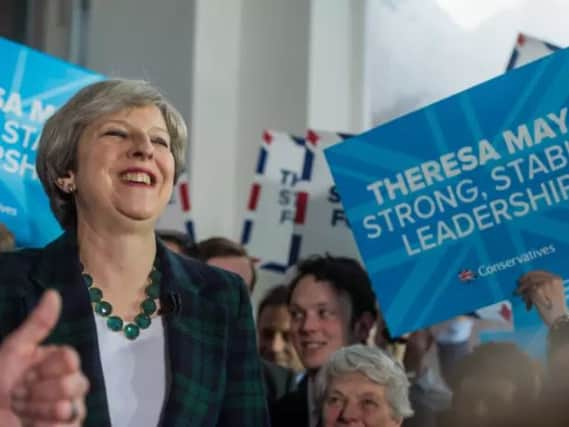EU's chief negotiator praises Theresa May over Brexit speech


Responding to the Prime Minister’s Florence speech – in which she set out her vision for post-Brexit arrangements – Michel Barnier welcomed its “constructive spirit”, adding that it demonstrated “a willingness to move forward”.
The address was also praised by members of the Cabinet, with Foreign Secretary Boris Johnson describing it as “positive, optimistic and dynamic”.
Advertisement
Hide AdAdvertisement
Hide AdBut critics expressed concern about the lack of detail in Mrs May’s proposals, with Labour leader Jeremy Corbyn accusing the party of wasting time settling internal divisions rather than formulating policy.
Yesterday’s speech comes just weeks ahead of the next meeting of the European Council where EU leaders are expected to decide whether sufficient progress has been made on phase one of Brexit talks to move on to discussions about a future relationship.
This includes guarantees over the future rights of EU nationals living in the UK, a solution to avoid a hard border between Northern Ireland and the Republic, and an agreement on outstanding financial obligations.
In a statement after the address, Mr Barnier said Mrs May had “expressed a constructive spirit” and shown “a willingness to move forward, as time is of the essence”.
Advertisement
Hide AdAdvertisement
Hide AdHe went on to state that her assurances that any agreement on the right of EU citizens would be incorporated into UK law was a “step forward” and welcomed the acknowledgement that none of the remaining 27 member states should have to “pay more or receive less because of Brexit”.
“We look forward to the United Kingdom’s negotiators explaining the concrete implications of Prime Minister Theresa May’s speech,” he said. “Our ambition is to find a rapid agreement on the conditions of the United Kingdom’s orderly withdrawal, as well as on a possible transition period.”
The most notable aspects of the speech included a commitment to a “strictly time limited” transition period and a “bold” new agreement on security, law enforcement and criminal justice co-operation. It also ruled out future membership of the European Economic Area – an option Mrs May warned would “lead to friction” – as well as a Canadian-style free trade agreement, which the Prime Minister described as restrictive.
This approach appeared to succeed in appeasing Brexiteers within the Cabinet, with Mr Johnson taking to Twitter to praise a “positive, optimistic and dynamic” speech.
Advertisement
Hide AdAdvertisement
Hide AdDefra Secretary Michael Gove added: “An excellent speech from the PM in Florence – delivering on the wishes of the British people.”
However, Ukip’s interim leader Steve Crowther said it was “hard to see what in Mrs May’s speech would conceivably move the EU’s position. “Ernest entreaty and good faith is not a negotiating position” he said.
While Mr Corbyn claimed the address proved ministers are “still no clearer about what our long term relationship with the EU will look like” despite the 15 months that have passed since the referendum.
“The only advance seems to be that the Prime Minister has listened to Labour and faced up to the reality that Britain needs a transition on the same basic terms to provide stability for businesses and workers,”the Labour leader said.
Advertisement
Hide AdAdvertisement
Hide Ad“That’s because Theresa May and her Conservative cabinet colleagues are spending more time negotiating with each other rather than with the EU.”